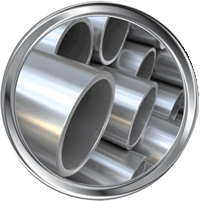Environmental 360 Solutions recycles batteries through our subsidiary “Raw Materials Company”.
RMC 3500 Mechanical Alkaline Battery Processing
Independently audited and verified under the CSA Group Guideline – CSA SPE-890-15 to have a recycling efficiency rate (RER) of 84%, the RMC 3500 (3rd generation) was specifically designed to recycle alkaline batteries. Our process recovers all of the battery components. Recycled products are sold locally without additives or further refinement. The non-recyclable plastic is converted to energy, offsetting 80% of the energy consumption of the process. Nothing is landfilled.
Materials Consumed Locally
All recovered materials are consumed within a few hundred miles of the RMC processing facility, limiting green house gas emissions associated with transportation.
Negligible Emissions
The RMC 3500 operates under negative pressure reclaiming the chlorine, ammonia and mercury vapours. Our process to recycle alkaline batteries creates negligible green house gas emissions.
Optimized Environmental Performance
Our process occupies a minimal physical footprint and draws minimal amounts of resources and energy to operate, therefore optimizing environmental performance while minimizing our carbon footprint.
Recycled Products from RMC Process
Zinc, Manganese and Potassium

Zinc, manganese and potassium are all natural earth elements and are necessary for life. Each of these elements plays a key role in promoting healthy plant growth and is found naturally in the soil and used in commercial fertilizers.
100% of the zinc, manganese and potassium is recovered and used as a premium micro-nutrient to grow corn – an originally intended application.
The use of RMC micro-nutrients increases corn yields by 20 bushels per acre. This is important considering the world’s growing population.
Steel and Nickel

Approximately 25% of an alkaline battery is made up of steel and nickel. Through our mechanical process, 100% of the steel and nickel is recovered and sold back into the local market as a premium product in the production of new metals.
Paper and Plastic

The non-recyclable paper and plastic from the battery is sent to an Energy from Waste (EFW) facility and converted into electricity.
The electricity produced from that paper and plastic offsets 80% of the electricity Raw Materials Company uses for its recycling process.